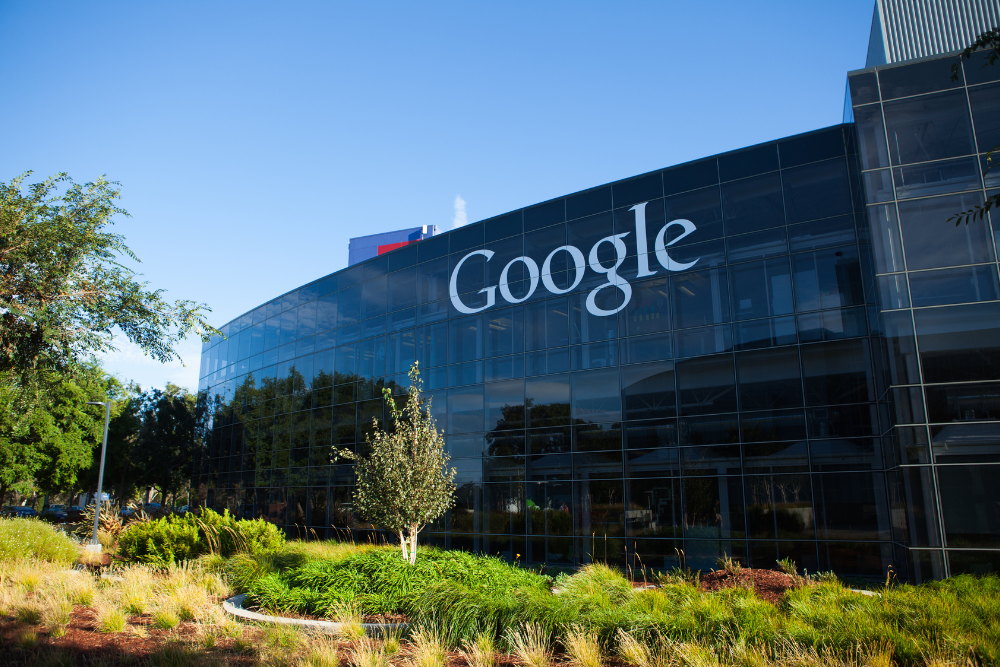The Power of Generative AI in Healthcare
Generative AI models, like ChatGPT, have immense potential to revolutionize healthcare beyond administrative tasks. ChatGPT can help healthcare workers to offer standardized care and better patient results.
ChatGPT's Performance in Medical Exams and Empathy Scores
In a recent study conducted by OpenAI, ChatGPT demonstrated remarkable performance on medical exam questions and empathy scores. This showcases the ability of generative artificial intelligence to understand complex medical concepts while maintaining an empathetic tone when interacting with patients or providing information. By incorporating this technology into daily practices, clinicians could transform healthcare by delivering more accurate diagnoses and treatment plans.

Standardizing Care Across the Board with Generative AI Assistance
A significant challenge faced by the healthcare industry is ensuring consistent quality of care across different facilities and regions. With generative AI assistance, such as ChatGPT, it becomes possible for physicians to access expert knowledge instantly without relying solely on their memory or expertise level. By leveraging AI, disparities in care can be minimized as physicians have access to expert knowledge regardless of their location or socioeconomic status, leading to improved health outcomes.
Medical imaging has already seen advancements through artificial intelligence applications that help radiologists identify abnormalities more accurately than traditional methods would allow them to, thus improving diagnostic accuracy rates significantly over time.
Benefits of Generative AI in Healthcare
- Better diagnostics: Leveraging generative AI technology in medical imaging can help healthcare organizations identify patterns and abnormalities more accurately, leading to better diagnostics.
- Personalized treatment plans: By analyzing patient data and using generative models, doctors can create personalized treatment plans tailored to each individual’s needs.
- Patient education: Generative AI chatbots could provide accurate information about their conditions and treatments, empowering them to make informed decisions about their care.
The incorporation of generative AI into healthcare could have a significant impact on the way providers offer care to patients. However, it is crucial for stakeholders within this field, including clinicians, mental health workers, and behavioral health staff, as well as tech giants investing in these advancements, such as Microsoft or Google, to work together collaboratively towards ensuring safe implementation practices that maximize benefits while minimizing risks associated with adopting new technologies like ChatGPT.
Challenges for Implementing Generative AI Clinically
Despite their potential, generative AIs like ChatGPT faces hurdles in clinical implementation. Trust issues arise due to their lack of transparency and inability to think clinically like a doctor. This section delves into these challenges that need addressing before widespread adoption.
Lack of Transparency in Language Learning Models (LLMs)
Generative artificial intelligence models can produce outputs without clear explanations, making it challenging for doctors and nurses alike to trust the recommendations provided by such systems. There is an urgent need for increased transparency in how LLMs arrive at their conclusions so clinicians can confidently rely on them as part of patient care.

Gaining Trust from Doctors for Implementing Generative AIs
To successfully integrate generative AI technology into healthcare settings, gaining the trust of medical professionals is essential. This could be achieved through rigorous testing and validation processes that demonstrate the efficacy and safety of these tools in various clinical scenarios. Additionally, providing case studies showcasing successful implementations may help alleviate concerns among doctors about using AI-powered solutions within their practice.
Beyond building trust with individual practitioners, ensuring regulatory compliance will also play a crucial role in facilitating the adoption of generative AI within healthcare organizations. This includes conforming to regulations from organizations like the FDA and other applicable authorities. Compliance with regulations from organizations such as the FDA is essential for facilitating the adoption of generative AI in healthcare.
Another aspect that could help build trust is incorporating AI systems into medical education, allowing future healthcare professionals to become familiar with their capabilities and limitations early in their careers. This exposure would enable them to understand better how generative AI can be used effectively within clinical settings while also addressing potential ethical concerns (source).

Addressing Data Privacy Concerns
Data privacy is another significant challenge when implementing generative AI in healthcare. The sensitive nature of patient information requires strict adherence to data protection regulations like the Health Insurance Portability and Accountability Act (HIPAA) or General Data Protection Regulation (GDPR). To ensure compliance, developers must design these systems with robust security measures that protect patient data from unauthorized access or misuse (source). Moreover, transparency regarding data usage policies will be crucial for building trust among patients who may have reservations about sharing their personal health information with AI-powered tools.
Enhancing Trust, Accuracy, Consistency, and Safety
To overcome barriers hindering the adoption of generative AIs such as ChatGPT in clinical settings, we must develop supporting tools that enhance trustworthiness while maintaining accuracy and safety standards. This can be achieved through verification systems or digital layers for quantifying clinical confidence and ensuring consistent outputs through rigorous testing.
Developing Verification Systems or Digital Layers for Quantifying Clinical Confidence
A key challenge with generative AI models is their lack of transparency in decision-making processes. To address this issue, healthcare providers could implement verification systems to quantify the level of confidence in AI-generated recommendations. These systems would analyze AI suggestions based on established medical guidelines and best practices before presenting them to clinicians.
An example of a potential solution is Opeeka’s Person-Centered Intelligence Solution, which uses artificial intelligence to assist mental health professionals by providing evidence-based treatment recommendations. By incorporating similar technologies into generative AI applications like ChatGPT, doctors can have greater assurance that they receive accurate information backed by scientific research.
TRANSFORM CARE INTO VALUE
Improve Outcomes and Care Efficiency
Opeeka’s Person-Centered Intelligence Solution (P-CIS) connects to existing electronic health records and automates processes to improve care delivery.
Ensuring Consistent Outputs Through Rigorous Testing
Rigorous testing enhances trust among healthcare professionals when using generative artificial intelligence solutions. Healthcare organizations should collaborate with technology companies to conduct extensive tests simulating real-world scenarios across various patient populations and conditions.
- Frequent updates: Generative AI models should undergo regular updates based on user feedback from doctors, nurses, and other healthcare professionals. This iterative process will help improve the AI’s performance over time.
- Standardized evaluation: Establishing standardized evaluation metrics for generative AI models can provide a consistent benchmark to measure their effectiveness in patient care scenarios.
- Error analysis: Identifying common errors made by generative AIs and addressing them through targeted improvements can lead to more reliable outputs that clinicians can trust.

Collaboration between technology companies and key stakeholders within the industry is necessary to maximize the potential of generative AI models in healthcare. By working together, they can ensure that generative AI models are safe, effective, and beneficial to patients while minimizing potential risks associated with their implementation.
Generative AI has the potential to revolutionize healthcare by giving physicians access to important data that may result in enhanced health results. However, we must address challenges related to trustworthiness before this technology becomes widely adopted in clinical settings. Through verification systems or digital layers for quantifying clinical confidence and rigorous testing methods aimed at ensuring consistent outputs from these advanced tools, we may be able to make significant strides toward realizing the full benefits of generative AI in patient care.
Reducing Disparities Through Standardized Care
By leveraging generative AI to standardize care, we can reduce disparities faced by women, people of color, and other marginalized groups while providing equitable access to quality care for all patients. By implementing generatively assisted chatbots or decision support systems powered by advanced language learning models (LLMs) like ChatGPT, we can help ensure equitable access to quality care for all patients.
Addressing Discrimination Against Women and Minorities via Standardized Care
Studies have shown that women and minorities often receive unequal treatment in the healthcare system due to implicit biases among providers. Generative AI technology can mitigate these biases through standardized patient care protocols based on evidence-based practices. For example, an LLM-powered clinical decision support tool could provide doctors with unbiased recommendations tailored to each patient’s unique needs.
This approach would improve health outcomes and foster trust between patients and their healthcare providers. By ensuring that everyone receives consistent, high-quality care regardless of gender or ethnicity, generative artificial intelligence can play a crucial role in promoting health equity across the board.

Ensuring Equal Access Regardless of Socioeconomic Factors
Socioeconomic factors such as income level or geographic location often create barriers to accessing adequate healthcare services. With generative AI assistance integrated into telemedicine platforms or mobile applications, it becomes possible for underserved populations to access medical advice remotely without needing expensive insurance plans or traveling long distances.
- Rural communities: Generative AI-powered telemedicine solutions can help bridge the gap between rural patients and healthcare providers, ensuring that people living in remote areas receive timely medical attention.
- Low-income populations: By offering affordable access to virtual consultations with generative AI assistance, underserved individuals can receive personalized care without breaking the bank.
By leveraging the potential of generative AI technology, healthcare organizations can aim to improve health outcomes for all patients. For instance, advanced LLMs like ChatGPT could be used in medical imaging analysis or drug discovery processes, ultimately leading to more accurate diagnoses and effective treatments for various conditions.
To fully realize these benefits of generative AI technology within patient care settings, it is essential for healthcare organizations and industry leaders alike – including doctors and nurses – to collaborate closely with tech giants such as Microsoft and Google. This partnership will ensure safe implementation while maximizing the advantages offered by this cutting-edge innovation.
Collaborating with Tech Giants for Safe and Effective Adoption
The interest of tech giants like Microsoft and Google in AI for healthcare is promising. But, healthcare leaders must ensure safe and effective patient adoption of generative AI models. Collaboration between technology companies and healthcare stakeholders is vital for achieving this goal.

Role of Technology Companies in Advancing Generative AI Implementation
Tech companies create powerful tools to improve health outcomes across various medical domains, such as diagnostics, treatment planning, and mental health support. By working closely with healthcare providers, they can refine these solutions further to meet specific clinical needs.
- Innovation: Tech giants invest heavily in research and development (R&D), enabling breakthroughs that push the boundaries of what’s possible with AI technology.
- Data management: These organizations possess vast amounts of data essential for training robust machine learning algorithms. Their experience managing this information ensures privacy concerns are addressed effectively while maximizing potential benefits from generative AIs.
- Funding: With deep pockets, tech companies can provide much-needed financial resources for scaling up innovative projects within the healthcare industry.

Ensuring Patient Safety While Maximizing Benefits from Generative AIs
As generative AI advances, healthcare organizations and technology companies must work together to ensure patient safety remains a top priority. This collaboration can take several forms:
- Establishing guidelines: Developing clear standards for the use of generative AI in clinical settings will help minimize potential risks while maximizing benefits.
- Sharing expertise: Healthcare providers can offer valuable insights into real-world challenges patients and clinicians face – helping tech companies fine-tune their solutions accordingly.
- Promoting transparency: Open communication between all parties involved is crucial for building trust; this includes sharing information about how AI models are developed, tested, and implemented within medical contexts.
Forging strong partnerships between technology giants like Microsoft or Google with healthcare stakeholders is key to ensuring the safe adoption of generative artificial intelligence systems such as ChatGPT. By collaborating to reach shared objectives – enhancing health results and diminishing disparities in care delivery – we can use the full capacity of these advanced technologies without compromising patient safety or welfare.
FAQs
Generative AI in healthcare refers to the application of artificial intelligence models that can generate new data or information. In healthcare, these models can be used for tasks such as creating synthetic patient data for research, predicting disease progression, simulating treatment outcomes, or even generating 3D models of biological structures for study.
Generative AI can be used in numerous ways in healthcare, including drug discovery, personalized medicine, patient data privacy, medical imaging, and more. For instance, it can help in the creation of new potential drug compounds, generate personalized treatment plans based on a patient’s specific genetic makeup, or create synthetic data that can be used for research without violating patient privacy.
The use of Generative AI in healthcare, like any technology, must be governed by stringent regulations and ethical guidelines to ensure patient safety and data privacy. It is crucial to validate and test AI models thoroughly before they are used in a clinical setting. While Generative AI holds great promise for healthcare, it is essential to remember that it should be used as a tool to aid human decision-making, not replace it.
No, Generative AI is not intended to replace healthcare professionals. Instead, it is a tool that can aid healthcare professionals by automating repetitive tasks, providing insights from large volumes of data, and predicting patient outcomes. The goal is to augment human expertise, not replace it.
As technology continues to advance, the role of Generative AI in healthcare is expected to expand. We anticipate seeing more personalized treatment plans, improved drug discovery processes, and advancements in predictive healthcare. However, it’s important to note that the effectiveness of these technologies will still rely heavily on human oversight and the quality of data used to train AI models.
While promising, Generative AI does have limitations. The quality of the output heavily depends on the quality and quantity of the input data. Additionally, AI models often operate as a “black box,” meaning it can be difficult to understand how they derive their predictions or suggestions. This lack of transparency can be a significant hurdle in healthcare, where understanding the reasoning behind a decision is crucial.
At Opeeka, we leverage Generative AI to aid in data analysis, predictive modeling, and strategic decision-making. However, we always ensure that any AI-driven insights are validated by our team of experienced healthcare professionals to provide the most accurate and beneficial advice for our clients.
Conclusion
In conclusion, the field of Generative AI Healthcare holds immense promise for enhancing patient care and promoting standardized treatment practices among healthcare providers. However, to fully harness its potential, we must confront the challenges of transparency in language learning models and establishing trust among doctors. By engaging in collaborative efforts with technology companies, we can facilitate the safe adoption of Generative AI Healthcare while minimizing healthcare disparities, irrespective of socioeconomic factors.
TRANSFORM CARE INTO VALUE
Improve Outcomes and Care Efficiency
Opeeka’s Person-Centered Intelligence Solution (P-CIS) connects to existing electronic health records and automates processes to improve care delivery.
To ensure accuracy, consistency, and safety, it is crucial to develop robust verification systems that quantify clinical confidence and implement rigorous testing procedures to consistently deliver reliable outputs. By doing so, we have the opportunity to revolutionize the healthcare industry, significantly improving the lives of patients. Through the integration of Generative AI Healthcare into clinical practice, we can elevate the quality of care, standardize treatment approaches, and ultimately enhance patient outcomes. It is through these collective efforts that we can unlock the full potential of Generative AI Healthcare and shape a brighter future for healthcare delivery.








